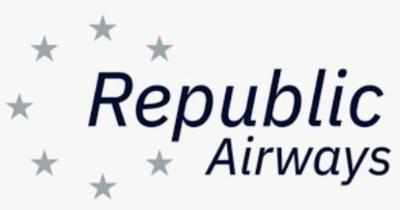Regional Airlines Argue Extant Standards Hamper Hiring and Service
Sunday, 12 February 2023 marked the 14th anniversary of the loss of Colgan Air Flight 3407, a Bombardier Q400 operated under a codeshare agreement with Continental Airlines that went down after entering an aerodynamic stall while on approach to New York’s Buffalo Niagara International Airport (BUF).

The entirety of the aircraft’s 49 occupants—passenger and crew alike—and one individual on the ground lost their lives.
The events of Colgan Air Flight 3407 occasioned a host of revisions to airline safety regulations, to include the establishment of a current rule by which pilots are required to log 1,500 flight hours and meet the knowledge and experience provisions of FAR 61.153—which lays out the eligibility requirements for FAA Airline Transport Pilot (ATP) certification—prior to operating a commercial aircraft under Part 121.
Notwithstanding its inherent logic and demonstrable effectiveness, U.S. regional air-carriers led by Republic Airways have aggressively and repeatedly petitioned the FAA to relax the 1,500-hour/ATP rule, alleging the requirement hampers the sector’s efforts to recruit qualified pilot candidates, thereby diminishing the stability and scope of regional air-carrier operations and encumbering essential air service to outlying communities.
The initiative to abrogate the 1,500-hour/ATP standard is opposed by major U.S. airlines, pilot unions, and the families and friends of those lost aboard Colgan Air Flight 3407.
U.S. House of Representatives Transportation Committee chair Sam Graves (Republican, Missouri) states he’d like to see a broader array of curricula and training conventions qualify as prerequisites for ATP certification.
Conversely, Senate Aviation subcommittee chair Tammy Duckworth (Democrat, Illinois) has set forth that she will oppose any efforts to “degrade” the 1,500-hour rule.

Prior to observing a 10 February remembrance ceremony in Buffalo, New York, the families of several Colgan Air Flight 3407 victims attended the first (07 February) of the U.S. House of Representatives’ FAA reauthorization hearings. Among the attendees was Scott Maurer of Palmetto, Florida, whose adult daughter, Lorin, lost her life in the Flight 3407 disaster.
Mr. Maurer asserted: “No aviation-related legislative process would be complete without the airlines having their hands out looking for some type of government bailout, and here we go again. Every time there is a crisis, real or alleged, the airlines cry wolf and look for all sorts of concessions and accommodations. In this case, the regionals continue to spend millions of dollars lobbying against the safety initiatives unanimously adopted by Congress and implemented as a result of Flight 3407.”
Maurer added: “We will honor the memory of Lorin and all of our loved ones who were lost that night by continuing to show up and resist these efforts at every turn. We are counting on the leadership in the House to do the right thing and not allow these critical safety measures to be altered in any way."
Karen Eckert of Williamsville, New York, whose sister was among the Flight 3407 decedents, stated: “It truly is both remarkable and sad that we are still having to fight this fight nearly 14 years later. On one hand, you have over a decade of incontrovertible evidence that these requirements are working, and you have the foremost experts in aviation safety … staunchly defending them. And yet we continue to see maneuvering in the back rooms and shadows of Washington to undermine them in any way possible to rush young pilots into the cockpits of commercial airlines, all in the interest of fattening corporate profits and the bonuses of airline executives.”

On 19 September 2022, the Federal Aviation Administration (FAA) denied Republic Airways’s request to halve the flight time requirements for graduates of its Leadership In Flight Training (LIFT) Academy—a Part 141 flight-school operated by the Indianapolis-based air-carrier.
For purpose of expediting pilot hiring, Republic Airways has vehemently and repeatedly argued in favor of reducing FAA mandated airman flight-hour minimums.
Citing military training orthodoxy, Republic Airways has prevailed upon federal regulators to lower the flight-experience requirement of LIFT academy graduates from 1,500 to 750-cockpit hours—the mark at which U.S. military branches consider their pilots sufficiently skilled to be turned loose in taxpayer-owned aircraft. Republic, by inference, purports the flight-training provided by its LIFT Academy is the equal of military training.
The FAA, in a rare and refreshing instance of circumspection, rejected Republic’s claims, stating that even if a reduction of the type sought by the air-carrier didn’t constitute a clear hazard to public safety, Republic’s request for such an exemption was an inappropriate means by which to catalyze such sweeping and foundational change to longstanding Federal Aviation Regulation.
In its decision, the FAA asserted: “After full consideration of Republic’s petition for exemption and the public comments, the FAA has determined that the relief requested is not in the public interest and would adversely affect safety.”
Stooping to the basest device of contemporary contention, Republic invoked racism as rationale for its request, alleging that high academic, temporal, and financial barriers to the piloting profession—essentially, the flight time requirement—were nigh insuperable to minority groups.
By way of retort, the FAA wrote: “The FAA disagrees that the reduction of ATP flight-hours will address: (1) a perceived pilot shortage, (2) reduced commercial aviation services to small communities, or (3) recruitment within diverse talent pools.”
 Aero-News: Quote of the Day (05.09.24)
Aero-News: Quote of the Day (05.09.24) ANN's Daily Aero-Term (05.09.24): Hold Procedure
ANN's Daily Aero-Term (05.09.24): Hold Procedure ANN's Daily Aero-Linx (05.09.24)
ANN's Daily Aero-Linx (05.09.24) Airborne 05.03.24: Advanced Powerplant Solutions, PRA Runway Woes, Drone Racing
Airborne 05.03.24: Advanced Powerplant Solutions, PRA Runway Woes, Drone Racing Airborne-NextGen 05.07.24: AI-Piloted F-16, AgEagle, 1st 2 WorldView Sats
Airborne-NextGen 05.07.24: AI-Piloted F-16, AgEagle, 1st 2 WorldView Sats





